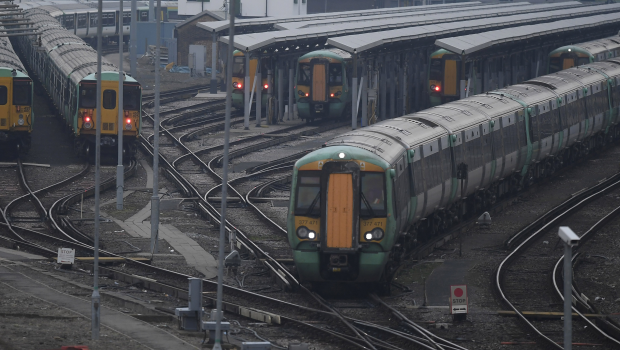Thousands of rail workers to vote on further strike action

Thousands more railway workers are to vote on possible industrial action, it was confirmed on Tuesday, further compounding fears the UK is facing a summer of severe travel disruption.
The Transport Salaried Staff Association (TSSA) is to ballot its 6,000 members at Network Rail over pay, conditions and job security. The vote, on both strike action and action short of strike, will open on 20 June and close on 11 July. Strike action will be able to go ahead from 25 July should a majority of members vote in favour.
The row between TSSA and Network Rail, which manages the UK’s rail infrastructure, is the latest in a series of industrial disputes to hit the railways.
Members of the Rail, Maritime and Transport (RMT) union at Network Rail and 13 train operators have already voted to go on strike for three days from 21 June, while RMT and Unite members will hold a one-day strike at London Underground, also on 21 June.
The TSSA has also already announced strike ballots among members at four rail companies - Avanti West Coast, CrossCountry, East Midlands and West Midlands Trains - while members of Aslef, the drivers’ union, will strike later this month at Hull Trains, Greater Anglia and Croydon Tramlink.
TSSA general secretary Manuel Cortes said: "We could be seeing a summer of discontent across our railways if Network Rail don’t see sense and come to the table to face the concerns of their staff.
"Network Rail staff are asking for basic fair treatment: not to be sacked, a fair pay rise in the face of a cost of living crisis, and no race to the bottom on terms and conditions."
A spokesperson for Network Rail told the BBC that pay talks were going ahead, with an offer of 2.5% on the table. "Now is not the time for the TSSA to be jumping on the RMT strike bandwagon," they added.
Unions are demanding pay rises and commitments on job security against a growing cost of living crisis. Inflation is currently at 9% and expected to breach 10% later this year, according to Bank of England forecasts, while official data published on Tuesday showed that wages fell at the fastest rate in a decade in April.
Alongside strike action on the railways and London Underground, airlines and airports are struggling to recruit enough ground and air staff to meet a surge in demand following the lifting of pandemic restrictions. During the Easter holidays, passengers reported long queues, causing lengthy delays, while many were left stranded after flights were cancelled.
Motorists, meanwhile, have seen the cost of petrol and diesel reach historic highs, with the Competition and Markets Authority on Monday agreeing to a government request to investigate the surge in prices.